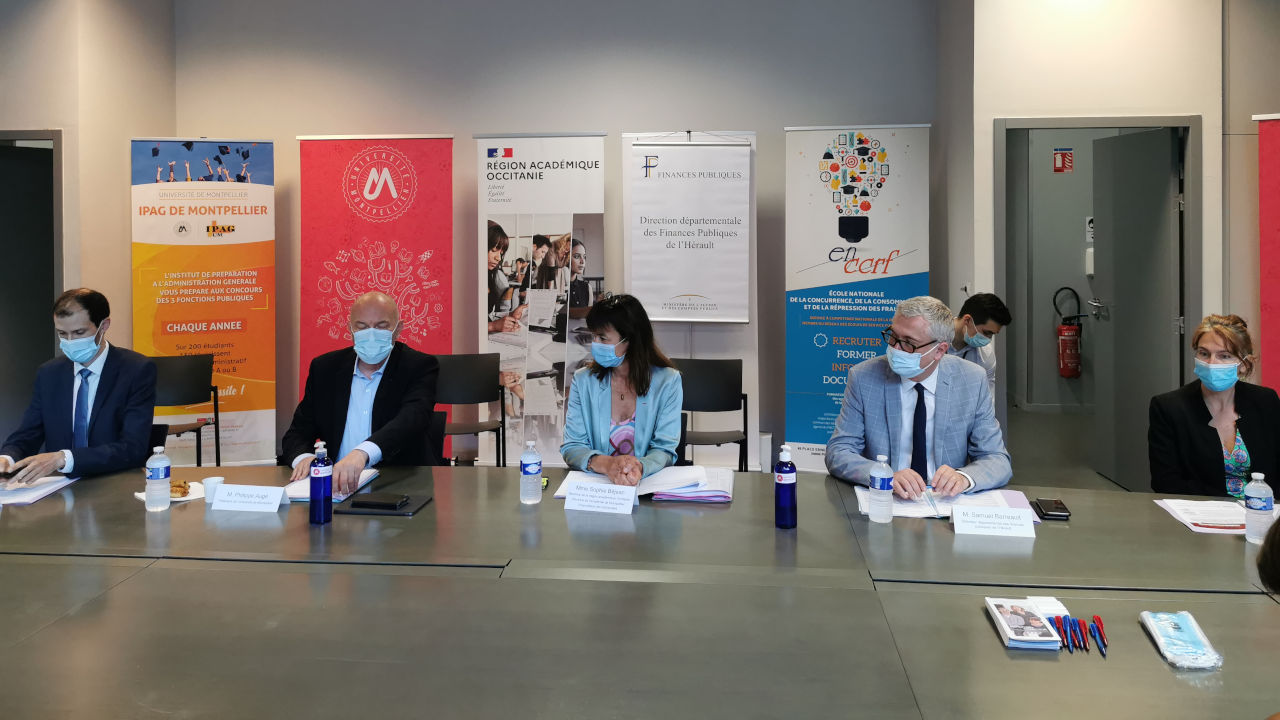Diversifying the civil service with the Prépas Talents program
Next September, the Montpellier Institute for General Administration Preparation (IPAG) will host three Prépas Talents. The objectives are to combat self-censorship among young people facing competitive exams and to diversify the senior civil service by facilitating the integration of people from less privileged social backgrounds.

In 2019, the proportion of students at the École nationale d'administration (ENA) who had a parent who was a manual laborer was 1%, compared to an average of 73% who had a parent in a higher intellectual profession. At the National Institute for Territorial Studies (INET), the proportion of students from higher intellectual backgrounds averaged 67%.
"There is a lack of diversity within the civil service. For a long time, there has been a clique mentality, which explains the self-censorship suffered by some students from less privileged backgrounds," notes Nicolas Marty, senior lecturer and director of the Institute for Preparation for General Administration in Montpellier (IPAG).
Going beyond the CPI
Psychological barriers, but above all financial and material barriers, emphasizes the teacher: "Depending on where we live and our income, we are not equal when it comes to education. It is more often children from middle and upper classes who can afford training and therefore enter the civil service. We need to help students and institutions to diversify the student body and achieve true equality of opportunity."To combat this reproduction of elites, the Ministry of Transformation and Civil Service and the MESRI are setting up 74 Prépas Talents classes, including three at IPAG in Montpellier, starting in the 2021 academic year.
"These 74 classes represent 1,700 places nationwide, which is 1,000 more than in the integrated preparatory classes (CPI), the previous system that already allowed us to recruit our students based on merit and financial need," Nicolas Marty points out. The desire to diversify the civil service is nothing new, but with Prépas Talents, the system goes further by offering double the financial aid to selected students, from €2,000 per year to €4,000. This aid can be combined with traditional scholarships, which are awarded based on social criteria.
Three specialized classes in Montpellier
Just as each civil service school had its own CPI, the Prépas Talents classes will be directly linked to the administrations for which they are preparing students. Montpellier is therefore renewing its partnership withthe Regional Institute of Administration in Bastia, the reference point for the south of France, and with the National School of Competition, Consumption and Fraud Prevention (ENCCRF). A third class will be opened in partnership with the Hérault Departmental Directorate of Public Finance (DGFiP). "Hosting these Prépas Talents classes is also an opportunity for the UM to strengthen its partnerships with important administrations. This synergy between the academic world and the professional world is a real factor for success."
Another new feature compared to previous CPI programs is the introduction of internships and enhanced mentoring for each student by a civil servant. "They are more like mentors. We will select them from among IPAG's current partners or from among our former students who have become civil servants,"explains Nicolas Marty. The discovery internships will be offered directly by the program so as not to create inequalities between students." As with the CPIs, however, enrollment remains relatively low: a total of 40 students in Montpellier across these three Prépas Talent classes, again with the aim of providing enhanced educational and methodological support.
Resources and merit
How will these students be recruited? "First of all, gender parity will be encouraged, which is essential, and candidates must have at least a bachelor's degree. They can come from technical colleges, master's programs, the professional world... The profiles and ages are very varied," says the teacher. Next comes the income criterion, with a ceiling of €33,100 per year. "We are targeting two groups: scholarship students and job seekers," continues Nicolas Marty. "Merit" will also be assessed, taking into account place of residence and family responsibilities. "We want to offer equal opportunities to those who face greater difficulties in studying." This commitment is in line with the UM's policy of equal opportunities and professional integration.
With the support of the Ministry of Transformation and Public Service, material resources will also be made available to students to prevent any inequality at this level: laptop loans, 4G keys, newspaper subscriptions (Le Monde, Les Echos, Acteurs publics, etc.), textbooks and school books, etc. "In short, all the resources that students from more affluent backgrounds would have at their disposal. The competition itself is very egalitarian, as it is the same for everyone, but the paths to get there can be very different,"concludes Nicolas Marty. We will soon see the first graduates entering the civil service, with a more visible effect on the face of the civil service."